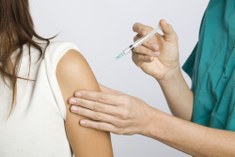Impact success story: Doping testing
Social outreach by the DoCoLab - the doping testing centre in Ghent - is mainly service-oriented: analysing doping control samples for the presence of prohibited substances. “Where is the social aspect, because, strictly speaking, it’s just a test?” Peter Van Eenoo asks aloud. His answer is simple: society asks for it.

Scientific services and advice
The DoCoLab receives urine samples, analyses them for the presence of prohibited substances and reports the results to organisations that handle the consequences. So in itself, the DoCoLab does not come into contact with athletes or sports organisations. It does speak to the press when there are questions. Peter Van Eenoo also gives lectures to his target groups about the effects and side effects of doping and the detection methods.
“And of course, like the other professors and researchers at the university, we do pure research - applied and fundamental research.”
"We teach at the university in those areas when relevant, for example in physical education. This gives young people the chance to learn early on why doping controls exist, what doping actually is and what’s prohibited, because there are a lot of misconceptions and misunderstandings on the topic.”
In principle, athletes cannot go to the DoCoLab with questions. The lab does not provide individual information in that context. In those cases, there is the Flemish doping line, with which the DoCoLab cooperates. “The only thing we do is make sure that athletes who are caught doping and have questions are given an objective answer here. Sometimes people who have taken a product that they did not know was on the doping list receive a letter with a complicated scientific explanation. Then we try to answer their questions.”
The pursuit of doping-free sports in light of the health risks is the main priority for Peter. Fair play is a close second, but what exactly does that mean? “It means that you do everything you can to win, to achieve the best possible performance, within the regulatory framework. For my part you can use every means possible within those limits to achieve victory. You may do things that some people may not like, but you must follow the rules.”
In his interviews with the press, Peter always reports when the lab has new methods or services. After all, it’s not up to him to catch people, but to prevent people from using. “You can keep people from doing something in part by warning them: “If you use, we’ll catch you.” Just as the police sometimes announces that there will be breathalyser or speed check campaigns. People don’t do speed checks to catch you, but to keep you from driving too fast.”